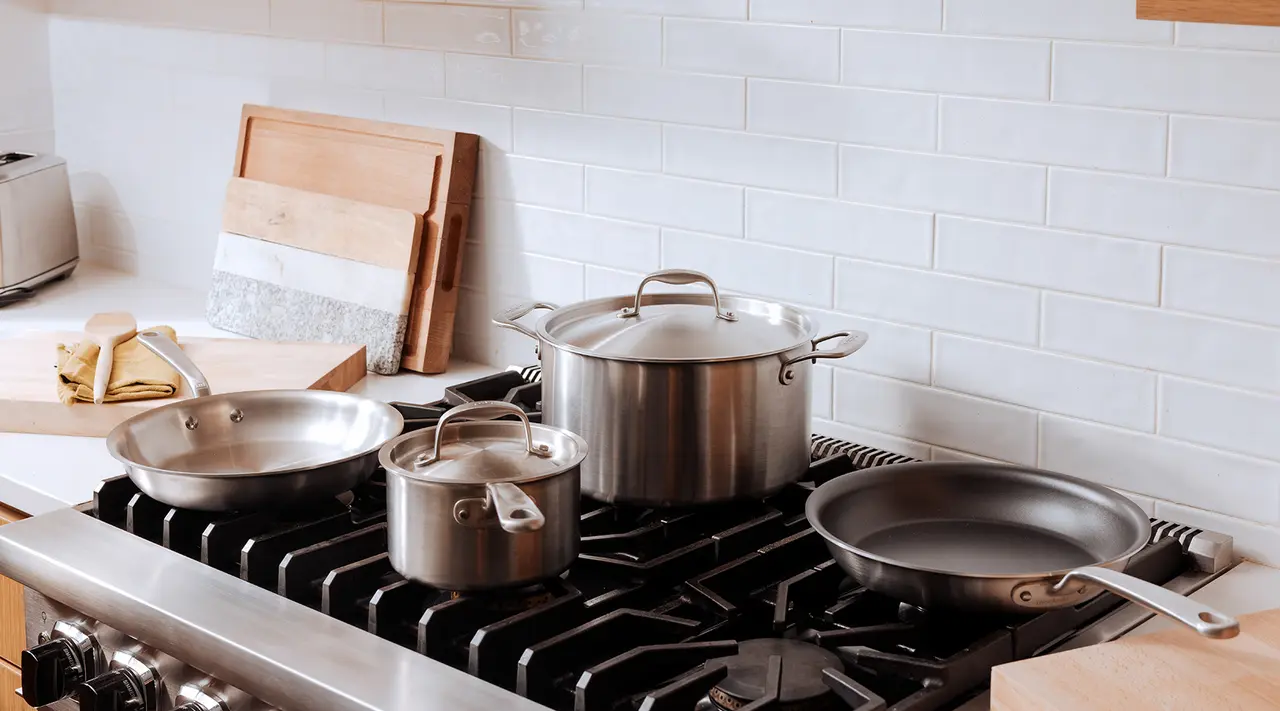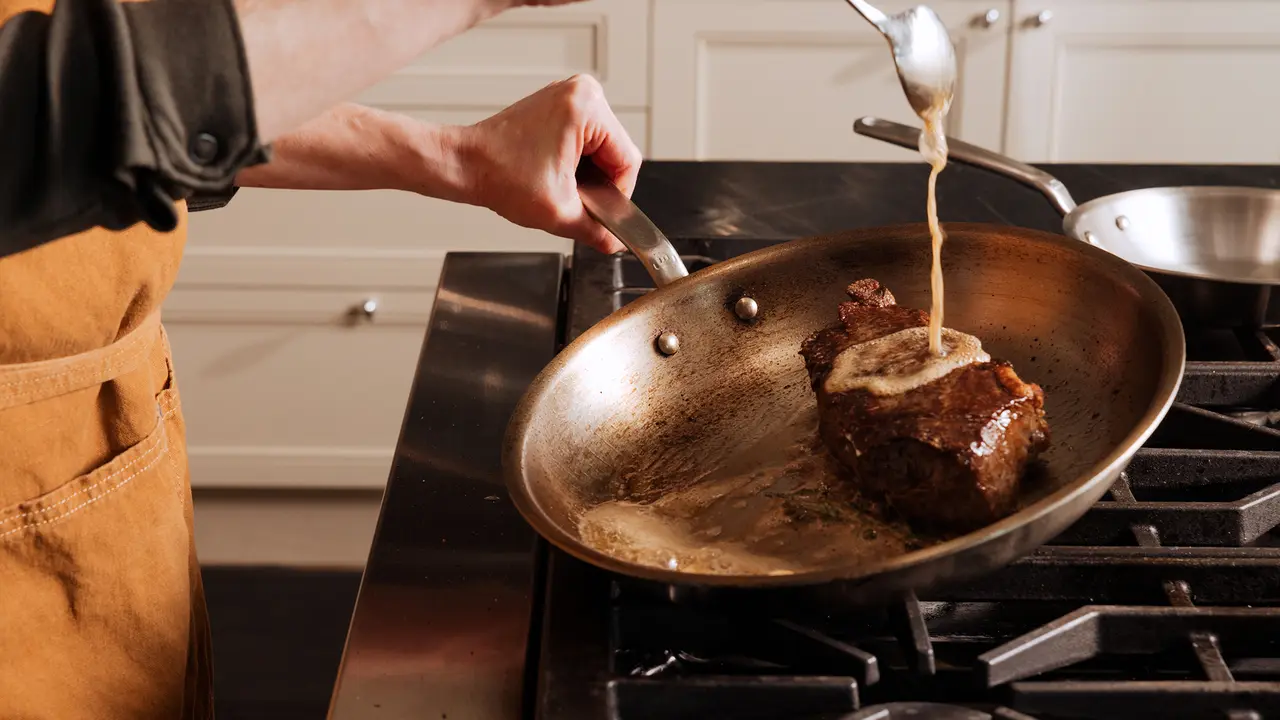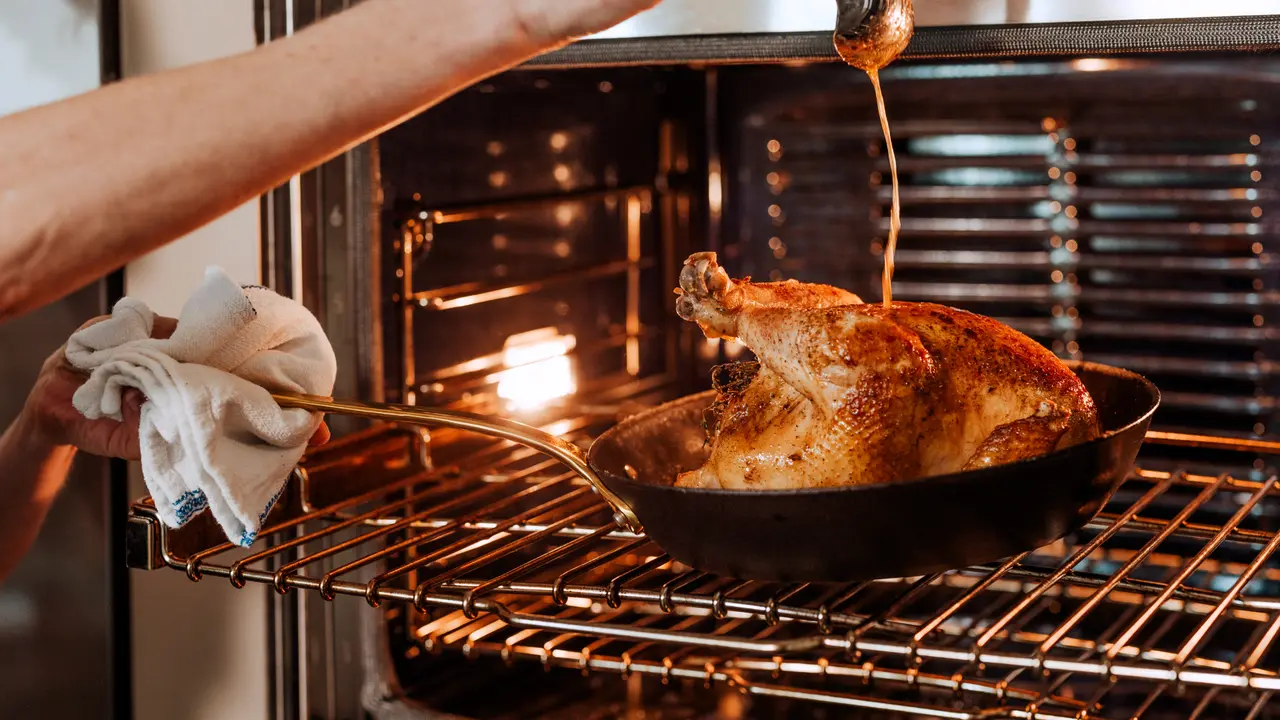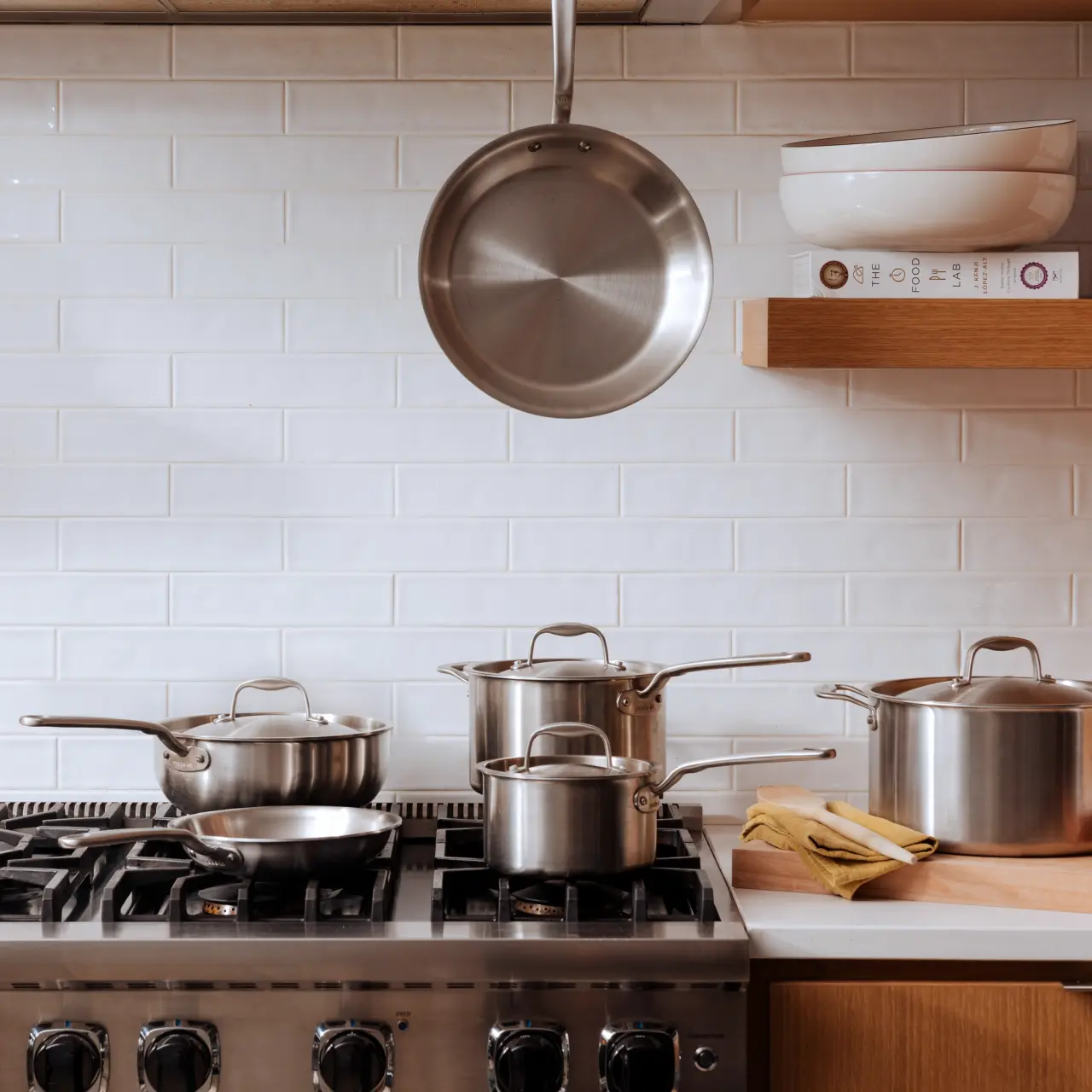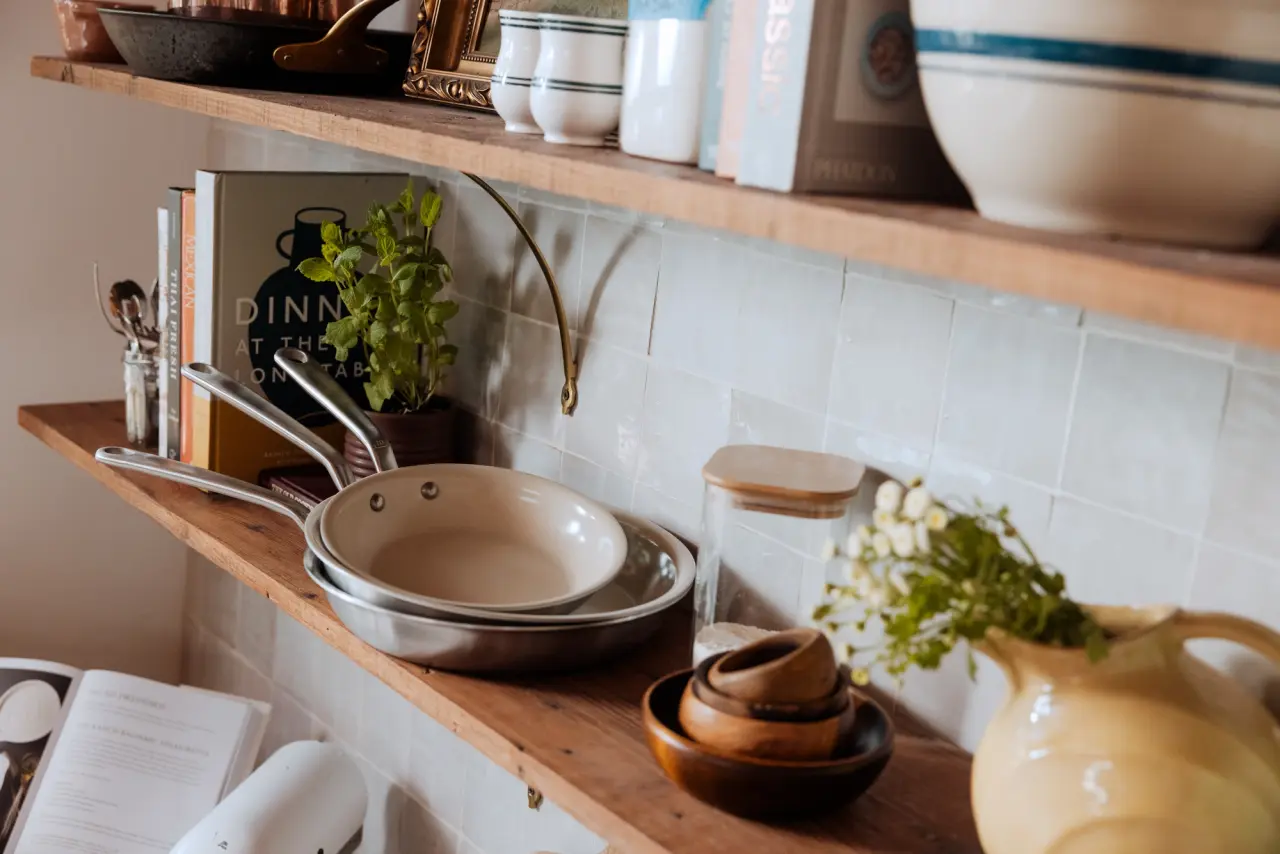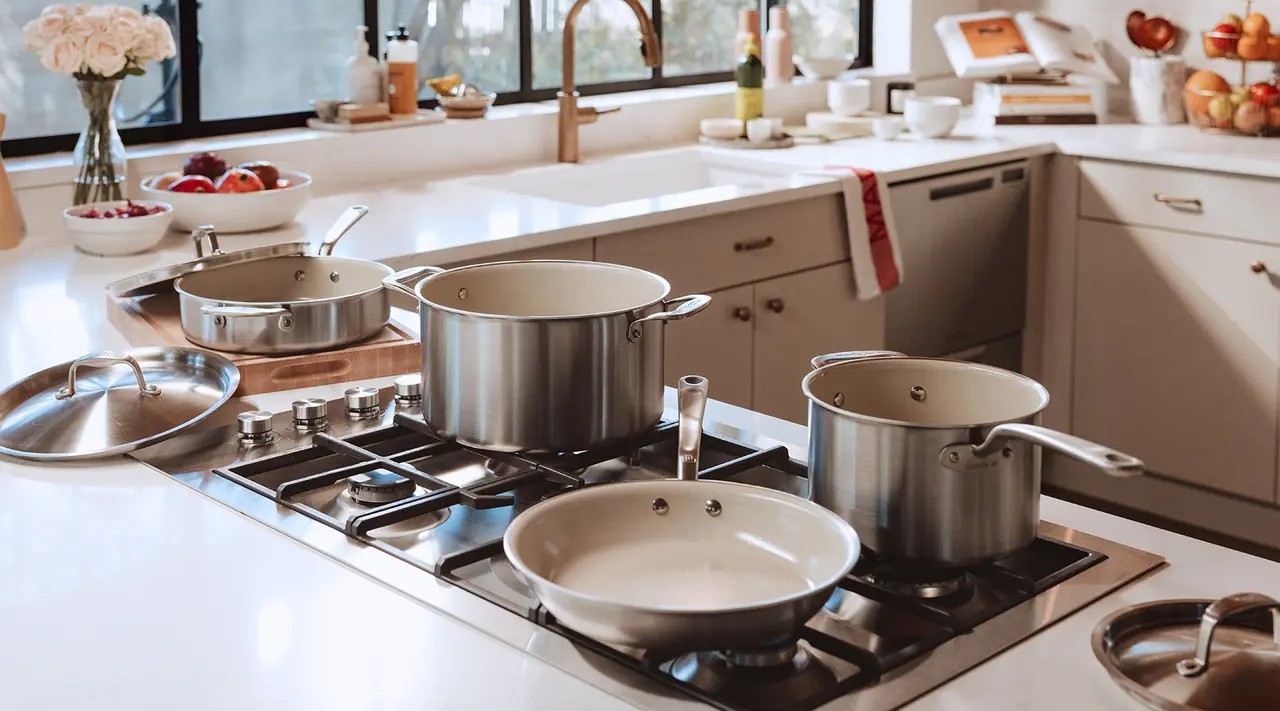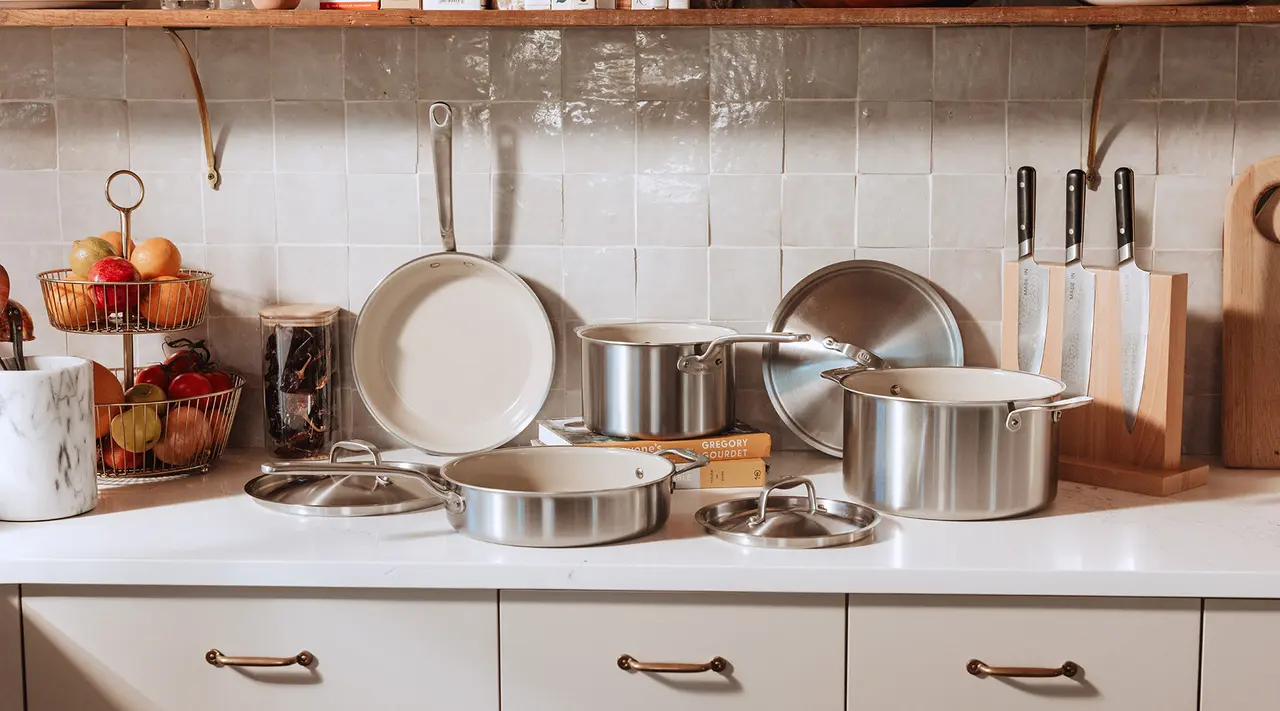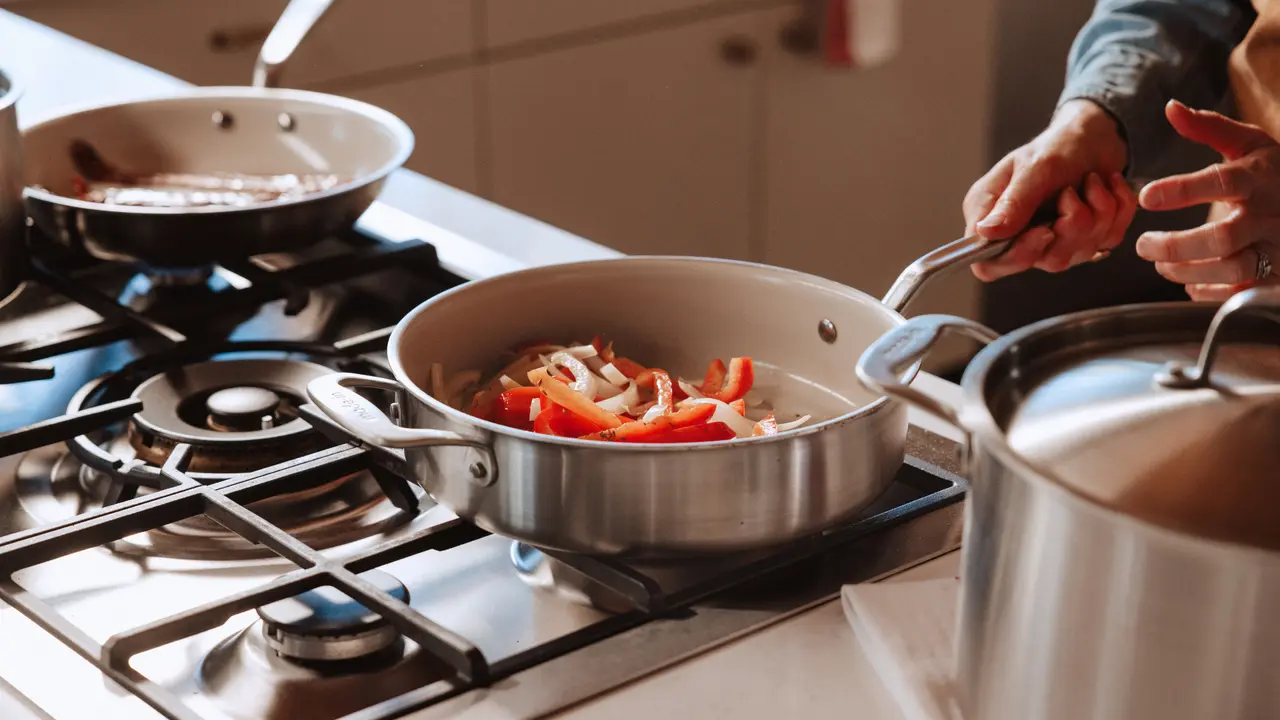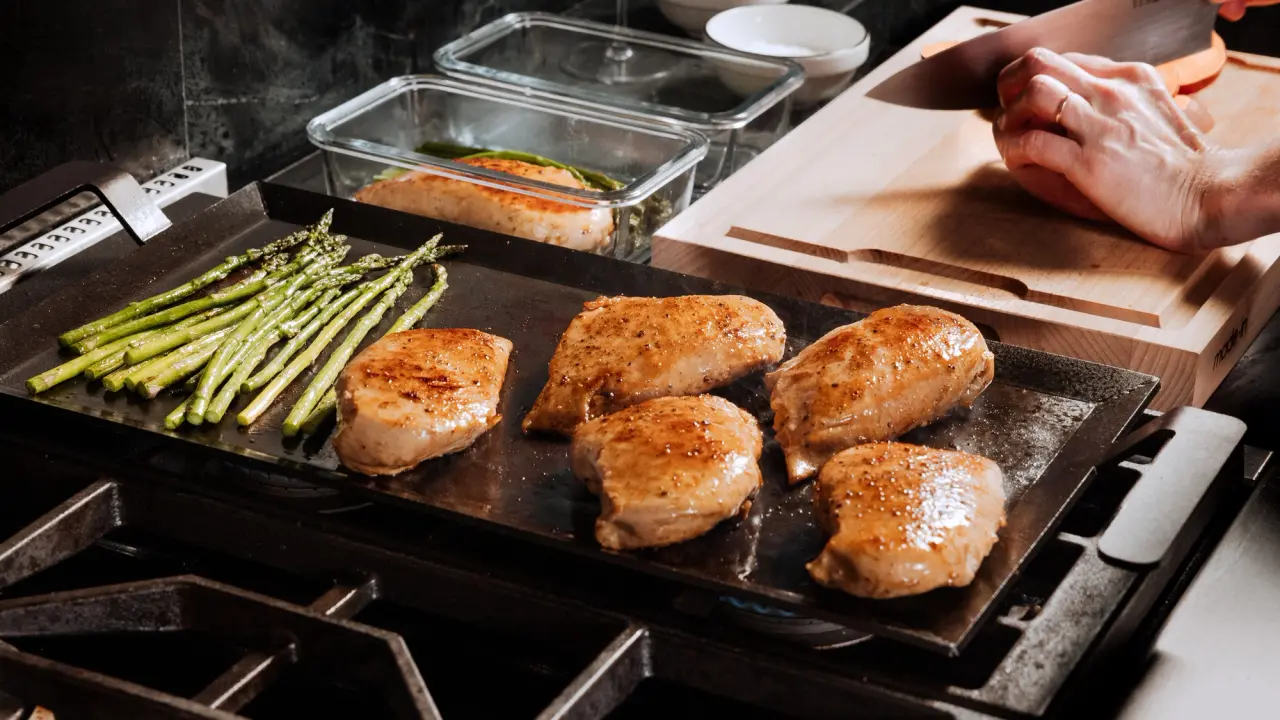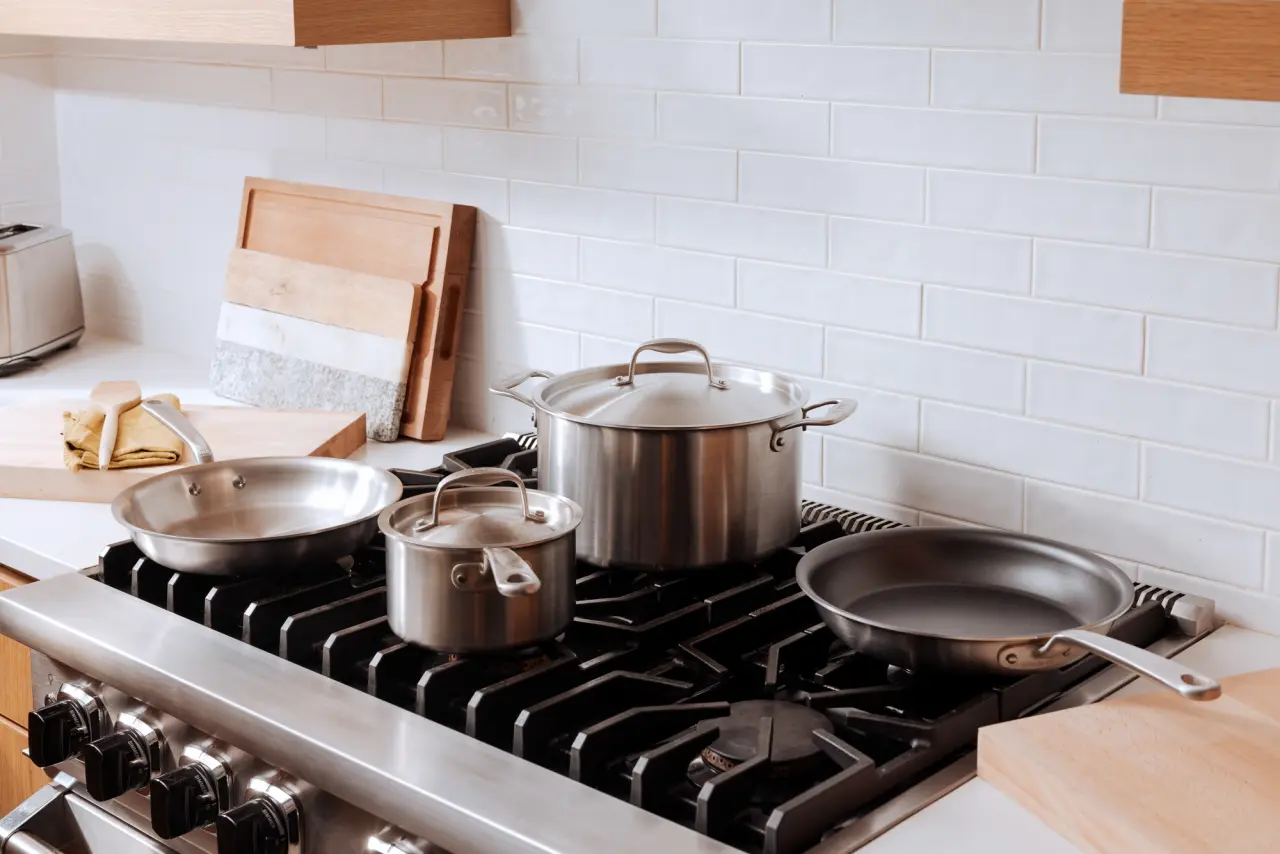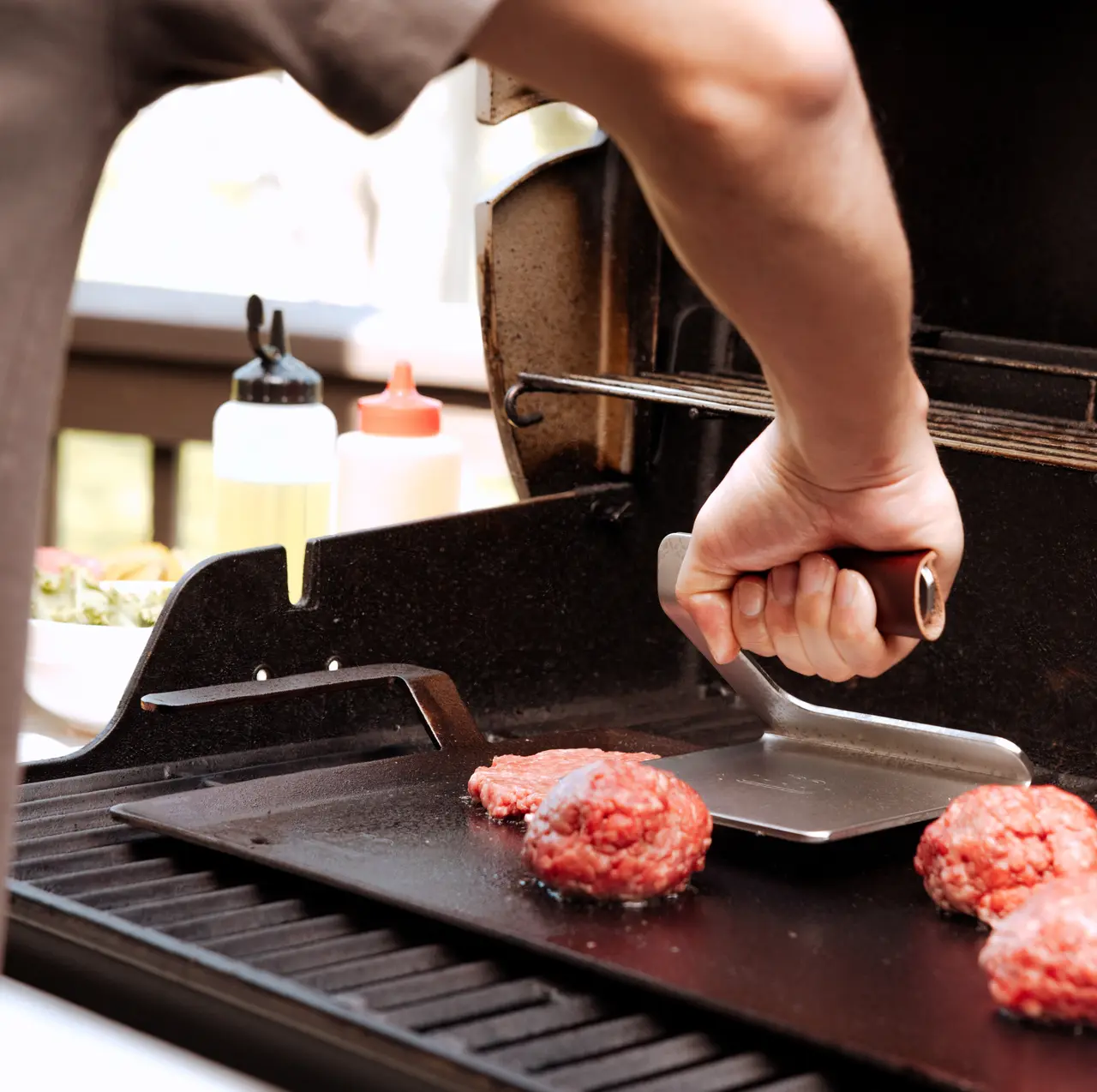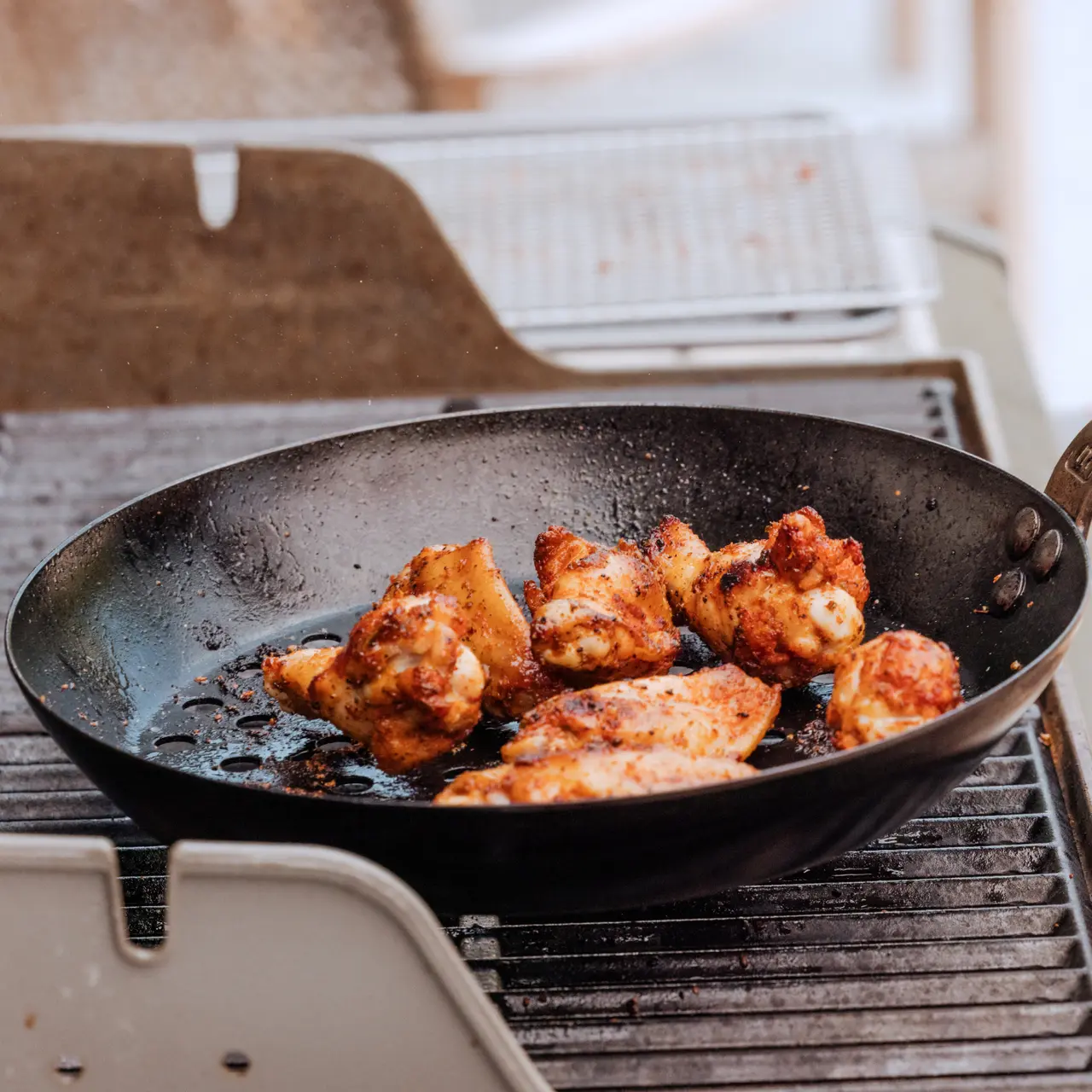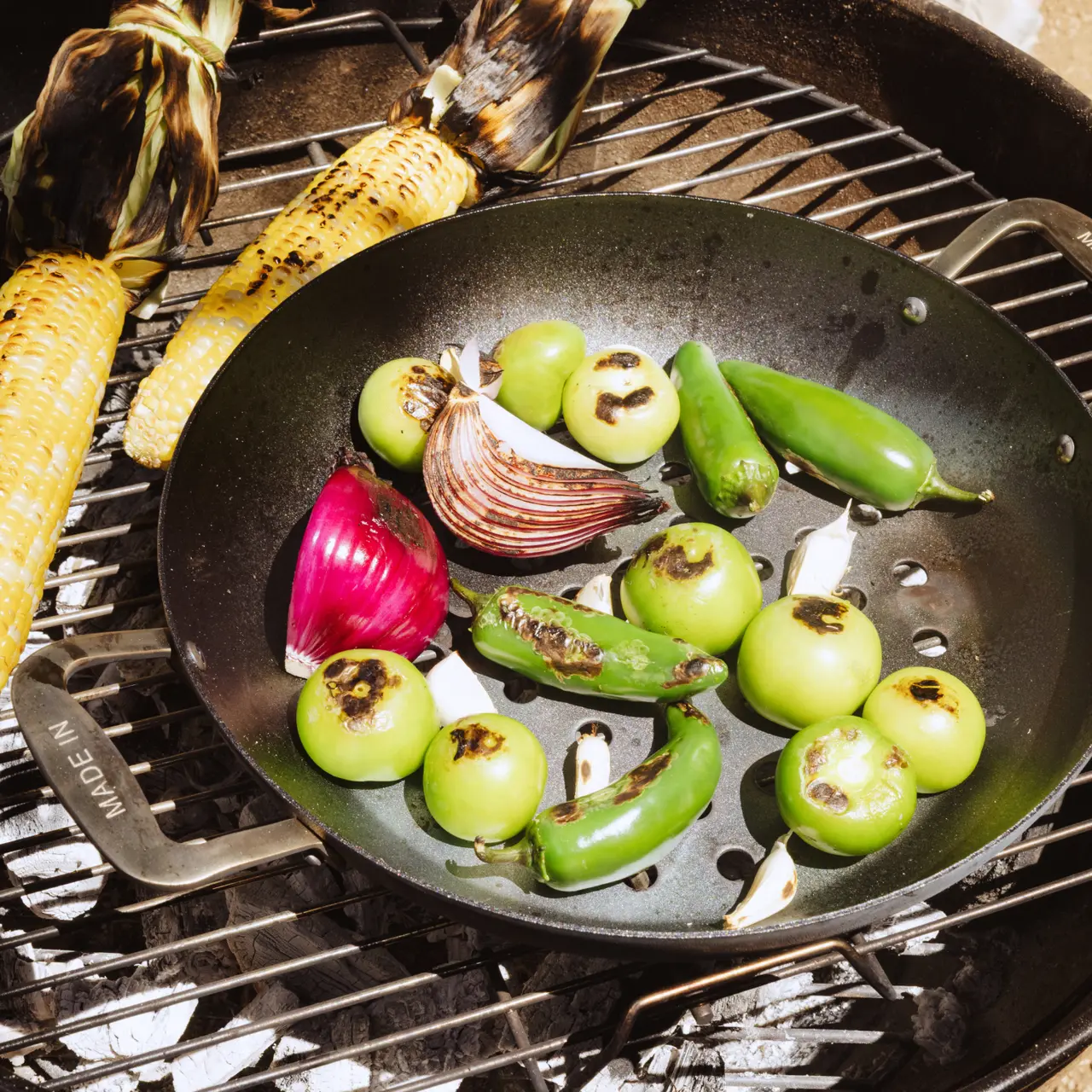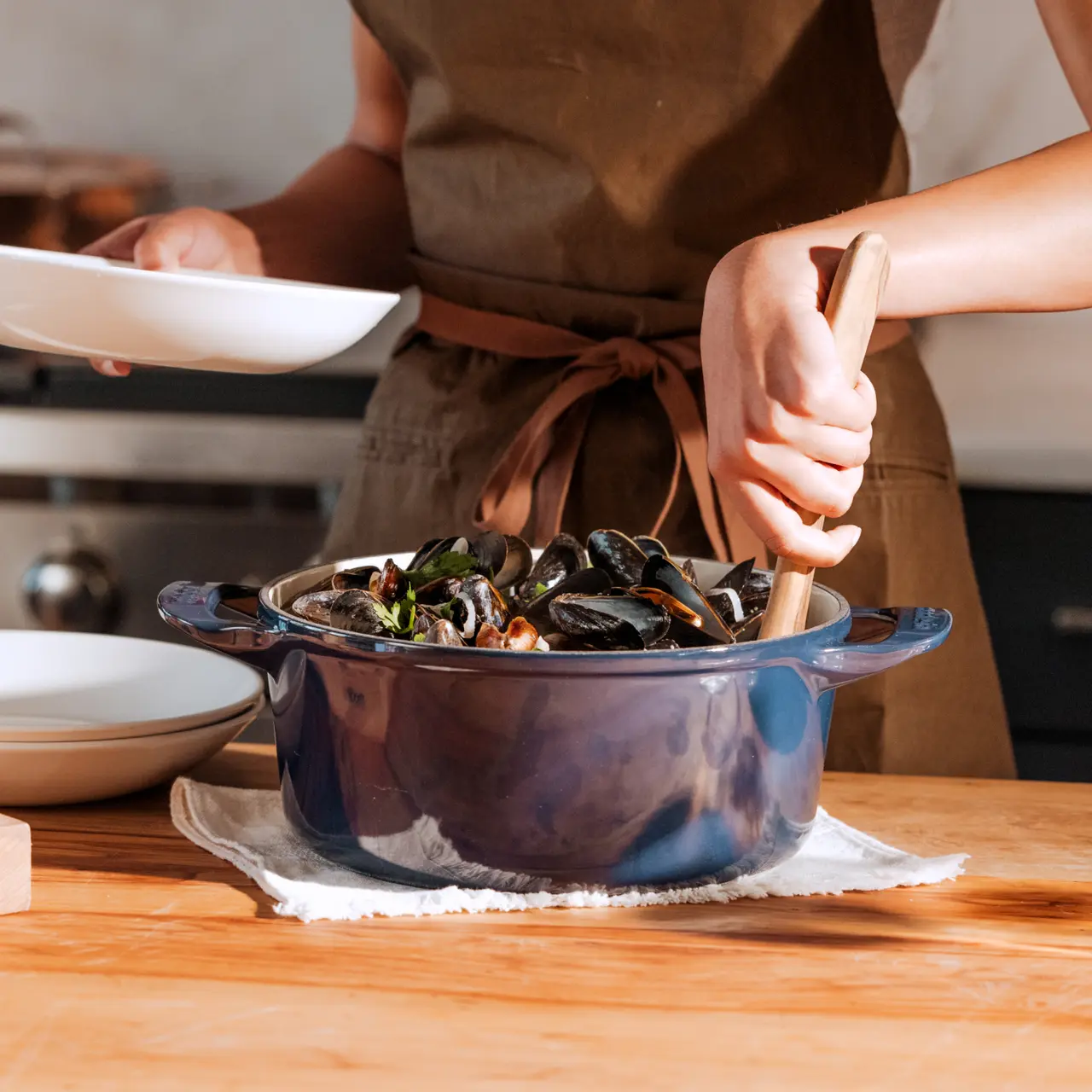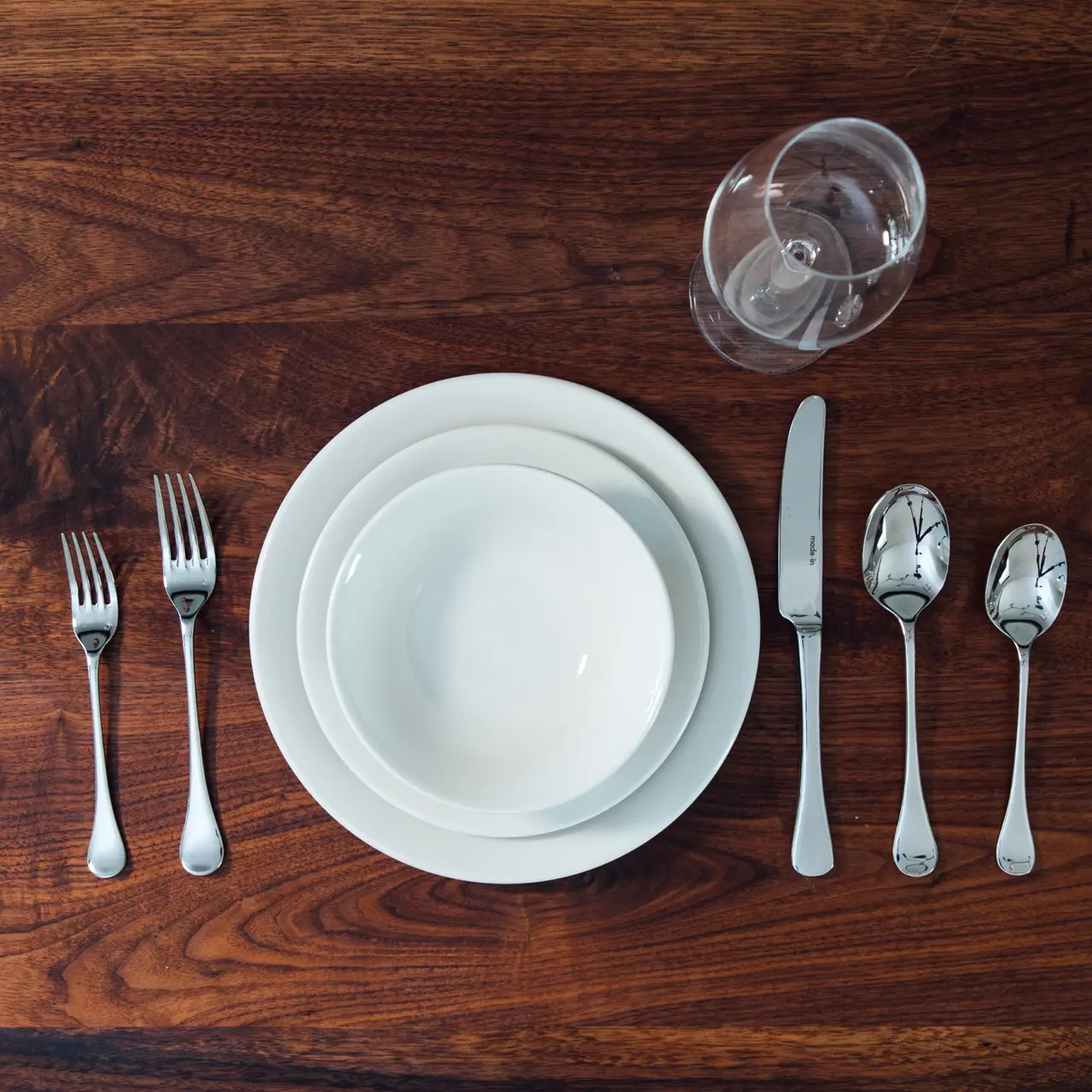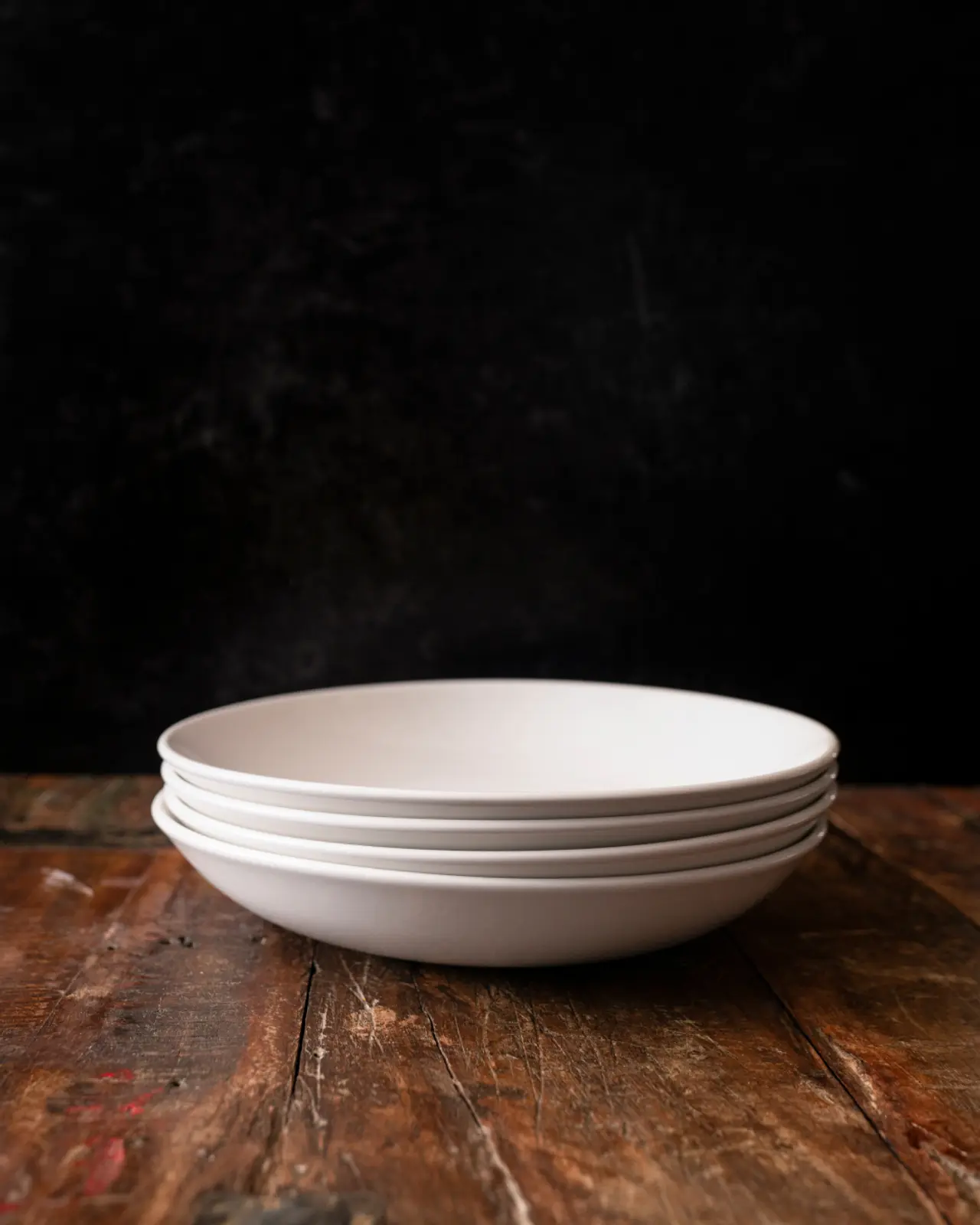There’s no one-size-fits-all best cookware material. A non stick pan, for example, might work great for the casual or busy cook—quick and easy scrambled eggs for the win—while someone who does a lot of searing, oven-roasting, or deep frying would fare better with carbon steel or cast iron.
While it might take a bit of trial and error to learn what materials work best for your cooking style, we wanted to give you a bit of a nudge. In the following guide, you’ll get a crash course in some of the most common cookware materials: enameled cast iron, carbon steel, stainless steel, non stick, and ceramic. Read on to learn what each one has to offer—and whether it’s the right pick for you.
Understanding Different Cookware Materials

Cookware materials vary pretty wildly. To demonstrate, compare a 10” stainless steel frying pan with a 10” cast iron frying pan: the former heats up in seconds, responds quickly to temperature change, and weighs a little over two pounds; in contrast, a cast iron pan can take as much as ten minutes to fully preheat and weighs nearly twice as much as stainless steel, though it also stays hot much longer.
Both have their merits: stainless steel’s responsiveness makes it ideal for delicate foods like fish, while cast iron’s excellent heat retention gives it a leg up when it comes to baking, braising, and slow cooking. Both also require different levels of maintenance (raw cast iron needs to be seasoned, for example), and come at significantly different price points.
In short, the “best cookware” is cookware that fits your personal cooking style, budget, and how much maintenance you’re willing to do.
Cast Iron
Best for: Slow cooking, baking, stews, and braises.
Cast iron is great for quick sears, low-and-slow braises, and even baking. Enameled Cast Iron offers a smooth, non reactive, relatively non stick surface, while unfinished cast iron is less delicate and more non stick with more seasoning.
Pros:
- Cast iron retains heat like no other material—even better than stainless steel.
- Relatively even heat distribution (though not quite on par with stainless steel or carbon steel).
- Safe for oven use (ours is oven-safe up to 580F), making it ideal for stove-to-oven recipes like steak.
- Enameled cast iron is non-reactive, and can therefore be used for dishes made with acidic ingredients like wine, citrus, and tomatoes without reacting with the metal.
Cons:
- Relatively heavy, making it cumbersome when tossing and flipping foods.
- Enameled cast iron scratches and chips more easily than non-enameled, requiring the use of non-abrasive tools and careful storage.
- Unfinished cast iron is reactive, so can’t be used for meals made with acidic ingredients.
Carbon Steel
Best for: Searing, stir-frying, and high-heat cooking.
Carbon steel is a great pick for high heat cooking methods like searing and stir-frying, is naturally non stick, and circulates heat better than cast iron.
Pros:
- Lightweight compared to cast iron.
- Excellent heat conduction and distribution.
- Naturally non stick once seasoned, with a patina that continues to develop with use.
Cons:
- Needs to be seasoned before use (unless buying pre-seasoned) and reseasoned as needed.
- High iron content makes it susceptible to rust if not properly maintained.
Stainless Steel
Best for: Browning, searing, sautéing, and deglazing
Stainless steel, a chef-favorite, is renowned for its ability to flawlessly retain and circulate heat, while weighing even less than carbon steel.
Pros:
- Rust- and corrosion-resistant stainless steel is incredibly durable and low-maintenance.
- Non-reactive, so can be used with acidic ingredients without producing off flavors.
- Dishwasher safe and resistant to scratching or chipping.
Cons:
- Uncladded stainless steel cookware often has hot and cold spots due to lack of aluminum or copper core.
- Not non stick; food will stick to surface of pan if not preheated properly.
Non Stick
Best for: Low to medium heat cooking, eggs, pancakes, and delicate fish.
Non stick pans feature a smooth, water- and oil-repellent surface that’s ideal for cooking items like fish, eggs, and pancakes.
Pros:
- Food releases easily from the pan with a minimal amount of oil.
- Fewer stuck-on messes means easier cleanup.
- Perfect for cooking fish, eggs, and other delicate or sticky foods.
Cons:
- Not suitable for high-heat cooking—the coating will start to break down after consistent use over high heat.
- Limited lifespan due to coating wearing down over time.
Ceramic
Best for: Low to medium heat cooking, baking, and roasting
Ceramic cookware offers many of the same benefits as conventional non stick, without the same concerns around the safety of its coating.
Pros:
- Non-toxic and PFAS-free.
- Good heat retention, depending on quality of construction and materials.
- Attractive design; available in a wide range of color options.
Cons:
- Low-quality ceramic has an even shorter lifespan than conventional non stick due to varying degrees of self-sacrificing coating.
- Can chip or crack easily.
How to Choose the Best Cookware Material for You
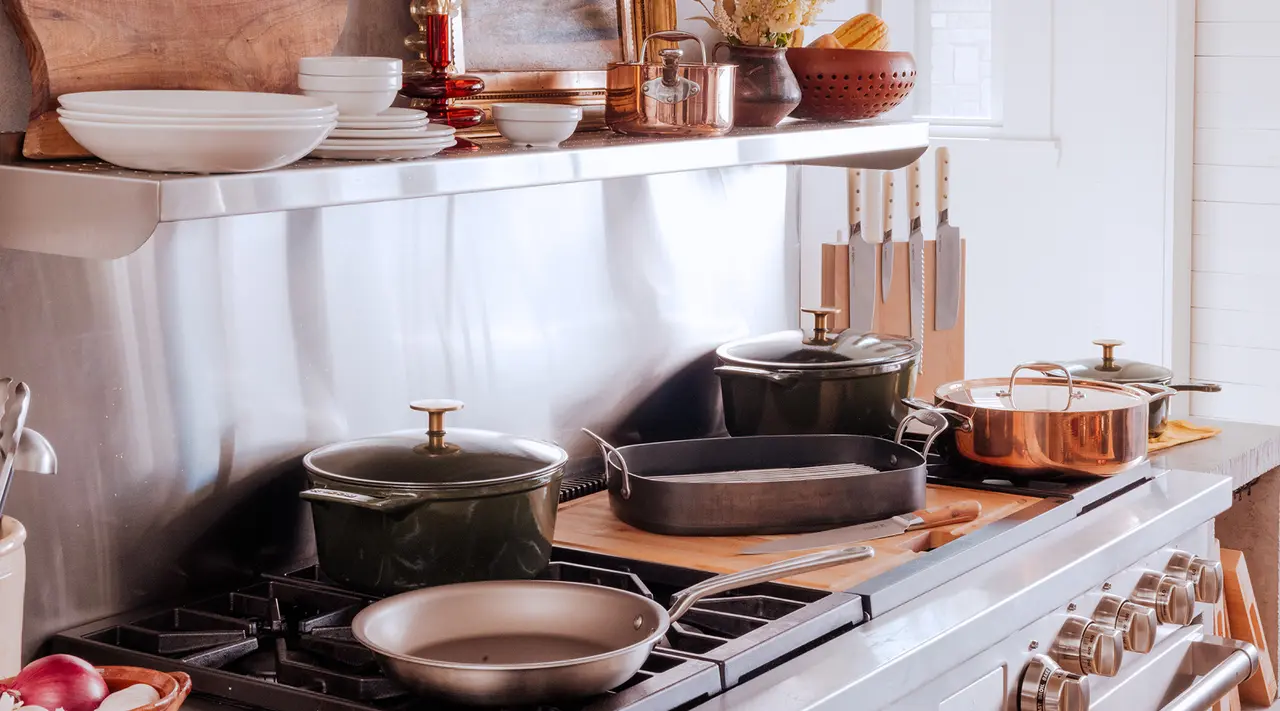
Here are the most important factors to consider before buying a piece of cookware.
Cooking Style
Do you tend to do a lot of braising, roasting, or searing? Opt for cast iron, or carbon steel. Grilled cheese sandwiches and omelets more your style? Non stick or ceramic is for you.
Budget
A high-quality stainless clad pan is often more expensive than something like non stick, for example, but can be worth it if you know you’ll use it frequently—cost per use is definitely something we encourage considering before purch
Health
Coated non stick pans are a great choice if you’re looking to cut down on cooking fats like oil and butter. If you’re concerned about coated cookware, however, you can opt for ceramic or a naturally non stick option like carbon steel or cast iron.
Ready to Shop?
We’re huge proponents of having a thoughtfully curated cookware collection: not only does this save money and storage space, but it’ll also ensure that every pot and pan you own will enhance your cooking experience.
And whether you opt for one of our pre-assembled Cookware Sets or build your collection piece-by-piece, each of our durable, professional-grade pots and pans is designed to be as accessible and user-friendly as possible—i.e., just as ideal for the casual home cook as for the professional chef.
